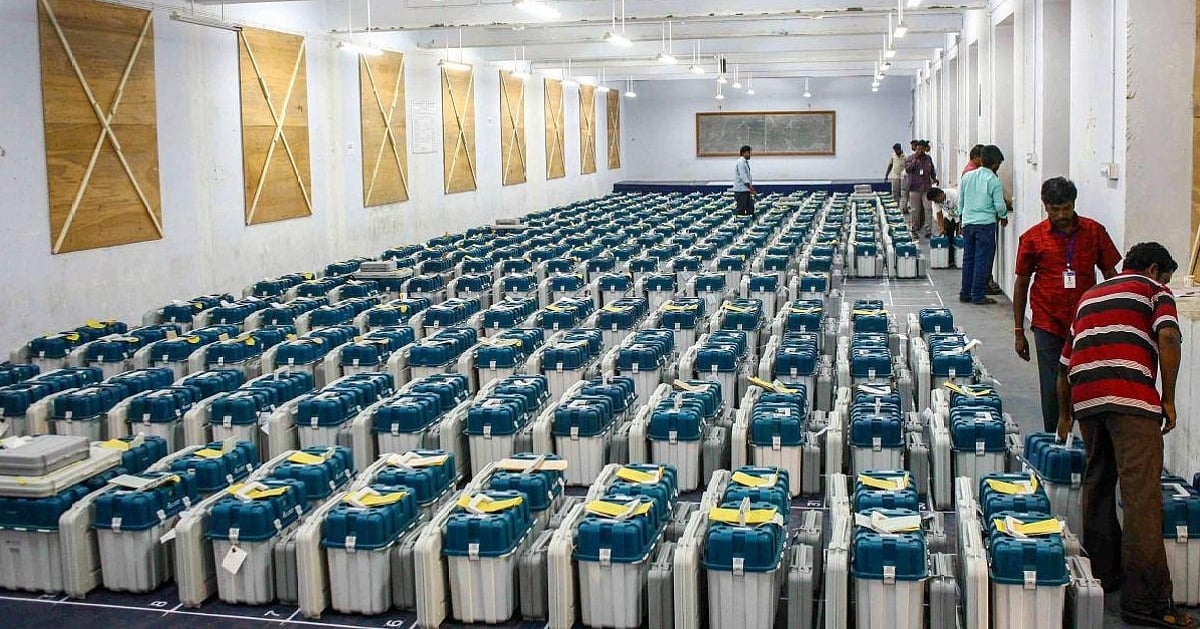 |
|
The recent news of a nonagenarian social activist staging an agitation against Electronic Voting Machines (EVMs) highlights a growing concern among a segment of the population regarding the fairness and accuracy of the electoral process. Following a significant electoral defeat for the Maha Vikas Aghadi (MVA) alliance, several prominent leaders have voiced their doubts and suspicions about the reliability of EVMs. This action by the nonagenarian serves as a potent symbol of this broader distrust, bringing into focus the ongoing debate about the transparency and security of EVM-based voting systems. The protest underscores the need for a thorough and transparent examination of the electoral process, reassuring citizens about the integrity of their votes.
The use of EVMs in India has been a subject of intense debate for years. While proponents argue that they offer speed, efficiency, and reduced instances of human error compared to traditional manual counting, critics raise concerns about the potential for manipulation and a lack of adequate transparency in the verification process. The absence of a paper trail for audit purposes has been a central point of contention, making independent verification challenging. The concerns are further amplified by the fact that the EVM technology is proprietary, limiting independent scrutiny and analysis of its inner workings. This lack of transparency fuels mistrust and provides fertile ground for allegations of manipulation, particularly in the aftermath of electoral upsets.
The nonagenarian's protest, though seemingly an isolated incident, resonates with a deeper current of public unease. The sheer determination of this elderly individual, defying age and societal expectations to voice her concerns, speaks volumes about the level of distrust some people harbor towards the electoral system. This distrust cannot be simply dismissed; it warrants a comprehensive response from the Election Commission of India (ECI) and the government. The ECI needs to proactively address these concerns by enhancing the transparency of the EVM system, implementing robust audit trails, and engaging in open dialogue with the public to build trust and confidence in the electoral process. Ignoring these concerns risks further eroding public faith in democratic institutions.
The opposition parties' questioning of EVM integrity is not simply a post-election reaction. It stems from a more fundamental concern about the potential for manipulation and the need for greater accountability within the electoral process. They argue that the lack of transparency creates an environment where allegations of rigging can easily take root and flourish, undermining the very foundation of a free and fair election. The demand for a more robust verification system is not simply a partisan issue but a crucial aspect of maintaining the integrity of democratic governance. A stronger, more transparent system would benefit all parties, enhancing the credibility and legitimacy of the election results.
Moving forward, several measures could help restore faith in the EVM system. Independent audits and verification processes conducted by reputable third-party organizations could significantly improve the public's confidence in the technology. The adoption of voter-verifiable paper audit trails (VVPAT) would offer a crucial layer of transparency and accountability, allowing for independent verification of the electronic count. Greater public education and outreach programs aimed at explaining the functionality and security features of EVMs can also play a vital role in dispelling misconceptions and building trust. Openness and transparency are key to ensuring a healthy and credible democratic process.
In conclusion, the nonagenarian's protest, while seemingly a singular event, serves as a powerful symbol of broader concerns surrounding the integrity of the electoral system. The allegations of EVM manipulation, fueled by post-election disputes, raise fundamental questions about the transparency and accountability of the voting process. Addressing these concerns requires not just technological solutions, but a broader commitment to openness, transparency, and meaningful engagement with the public. The ECI and the government must take concrete steps to ensure that the electoral process remains fair, transparent, and trustworthy in the eyes of the people, fostering faith in the democratic institutions that underpin India's governance.
Source: Nonagenarian social activist stages agitation against EVM
